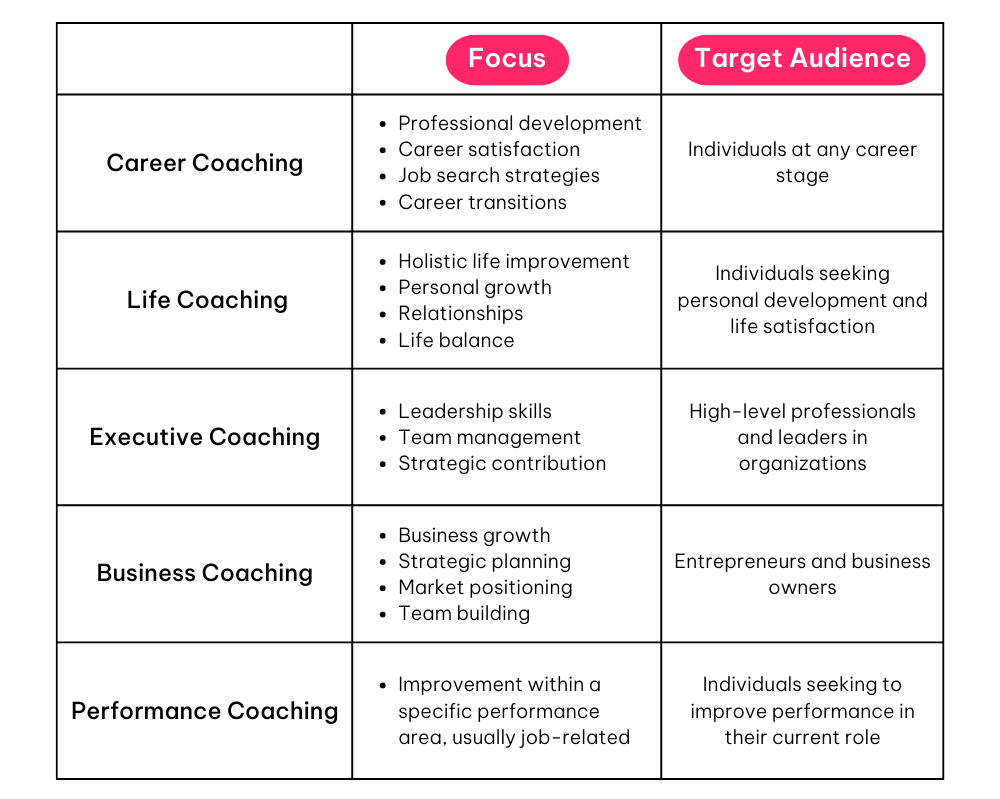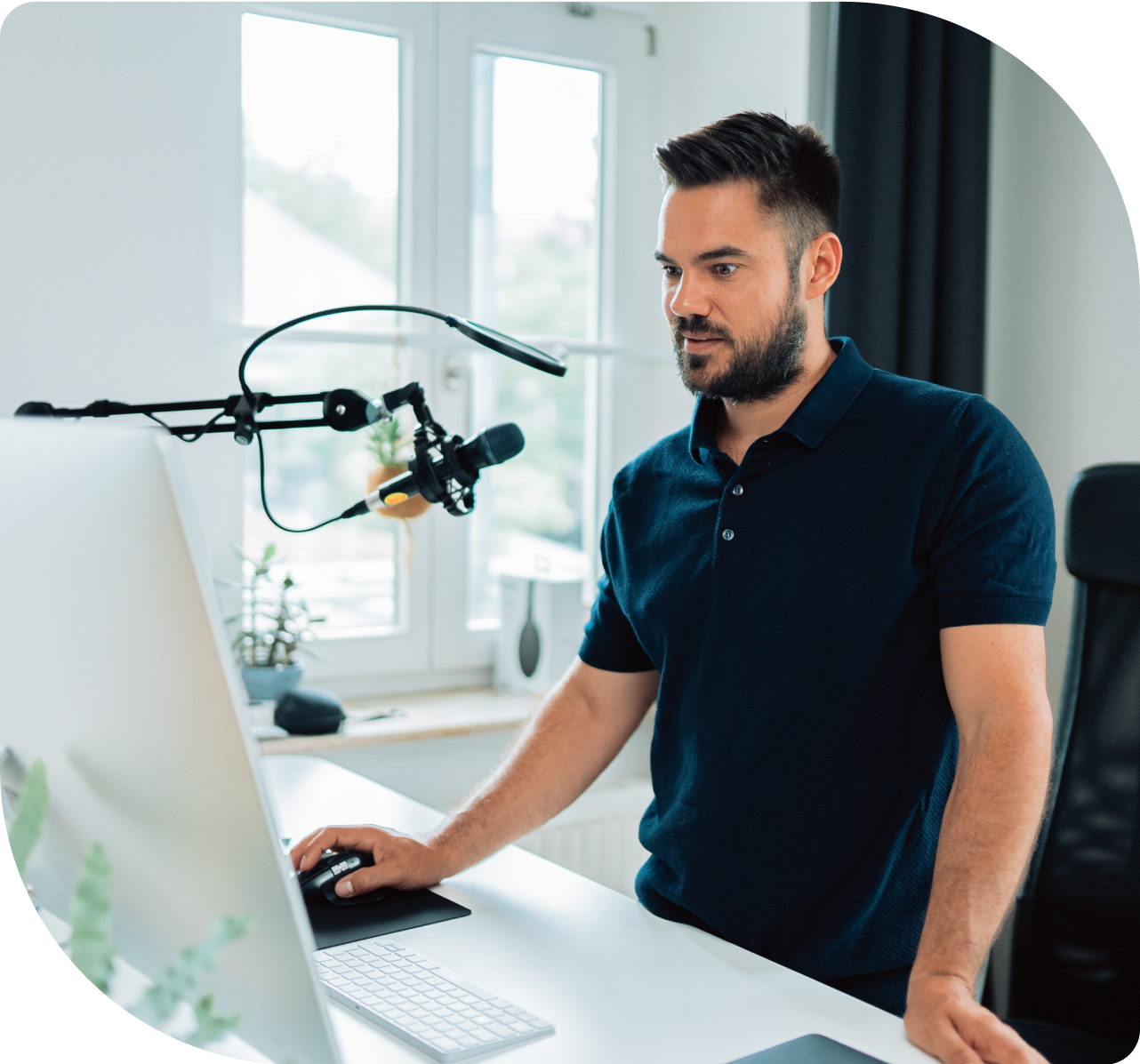Your Roadmap: How to Become a Career Coach and Change Lives

Hello, future career catalysts! You're here because you're keen on one specific quest—how to become a career coach. Well, you're in the right place.
You know that warm, fuzzy feeling you get when you help someone find their true potential and set them on a path to success? That's precisely what a career coach does—helping clients unearth their aspirations, clear professional hurdles, and navigate their way to fulfilling careers. Intriguing, isn't it?
The role of a career coach—to guide clients towards fulfilling careers—has never been more vital in today's fast-changing job market. But there's more to this rewarding profession than meets the eye. It's not just about the financial gain but also the unparalleled satisfaction of helping others succeed professionally.
But, where do you start? Don't worry, we've got you covered. This guide will provide a roadmap—whether you're a seasoned professional considering a career change or a fresh graduate with a drive to help others flourish in their careers.
So, buckle up and get ready to dive in as we demystify the exciting journey of becoming a career coach—one step at a time.
Here’s what this guide will cover:
What is a Career Coach?
Kick off your journey with a clear understanding of what a career coach does and the impact they make.Career Coaching vs. Other Types of Coaching
Explore the unique facets of career coaching and see how it stacks up against other coaching professions.Is Career Coaching Your Calling?
Reflect on your own qualities and hear wisdom from successful coaches to figure out if this path is meant for you.Earning Your Stripes: Career Coach Certification Requirements
Unpack the essential qualifications you'll need to become a certified career coach.Stepping into the Field: Your First Clients Await!
Learn strategies for gaining real-world experience and attracting your first clients to kick-start your coaching business.The Art of Networking: Building Powerful Connections
Uncover practical tips for effective networking, a key ingredient for your career coaching success.Staying Ahead of the Curve
Learn how to keep up with the ever-changing job market trends and uphold the highest ethical standards in your practice.Crafting Your Identity: Tailoring Your Unique Coaching Style
Discover the art of developing and adjusting your coaching style to meet diverse client needs.Mixing It Up: Blending Coaching Methodologies
Delve into various coaching methodologies and strategies, and learn how to integrate them into your practice.On Your Mark: Begin Your Career Coaching Journey
Recap and prepare to step forward in your exciting career coaching journey with a little parting wisdom.
What is a Career Coach?
At its core, a career coach guides and supports individuals in their professional journeys. They help clients assess their professional situations with a focus on honesty, curiosity, empathy, and compassion. But what does this look like in practical terms?
Here are some of the key responsibilities that a career coach typically undertakes:
1. Career Exploration:
Career coaches help clients explore and understand their career goals, values, and passions. They facilitate self-discovery, encouraging clients to consider fields and roles aligning with their skills, interests, and aspirations.
2. Decision-Making and Strategy:
A career coach supports clients in making informed decisions about their career development and trajectory. This could include identifying potential job opportunities, educational needs, or networking strategies.
They help create actionable career development plans that outline the steps clients need to take to reach their career goals.
3. Resume and Interview Assistance:
Career coaches offer invaluable assistance with job search tools like resumes, cover letters, LinkedIn profiles, and interview techniques. They provide feedback and advice to help clients stand out in a competitive job market.
4. Accountability and Motivation:
Career coaches serve as accountability partners. They challenge clients to push their boundaries, overcome hurdles, and stay focused and motivated during the job search or career transition process.
5. Transition Support:
Career coaches provide much-needed support during transitions, helping clients navigate challenges and maintain a positive and proactive approach, whether a career change, job loss or return to the workforce after a break.
6. Career Advancement:
For those seeking to advance in their current careers, coaches offer strategies to help clients move up, whether developing new skills, positioning themselves for promotions, or enhancing their performance in their current roles.
A career coach wears many hats—from counselor and mentor to strategist and cheerleader. Their ultimate goal? To empower clients to carve out a career path that is rewarding, fulfilling, and aligns with their personal and professional ambitions.
As you can see, the career coaching profession is all about creating change and propelling growth. If you have a passion for making a difference and thrive on the success of others, becoming a career coach might just be the calling you've been waiting for.
Career Coaching vs. Other Types of Coaching
In its broadest sense, coaching is a process designed to help individuals improve their performance, achieve goals, and find greater fulfillment. However, different types of coaching focus on different aspects of a person's life.
Let's compare career coaching with some other common forms of coaching:

In essence, while all types of coaches work with individuals to reach their potential, career coaching is specifically aimed at helping individuals achieve professional fulfillment. It's a unique blend of guidance, mentorship, and strategic planning focused on the world of work, distinguishing it from other types of coaching.
So if your passion lies in empowering others to find their path in the professional world, becoming a career coach may be the perfect fit for you.
Is Career Coaching Your Calling?
As with any profession, certain characteristics can make individuals more suited to career coaching. Moreover, the wisdom and best practices of seasoned coaches in the field can offer valuable insights.
Here are some key traits that successful career coaches often possess, paired with enlightening quotes from industry veterans:
1. Empathy and Compassion:
As a career coach, you will be working with individuals who may be confused, frustrated, or in a transitional phase. Being able to understand and share the feelings of another is crucial in this role.
As Marshall Goldsmith, renowned executive coach and author, has said,
"The most successful coaches are those who realize it's not about them—it's about the other person.”
2. Strong Communication Skills:
You must be able to communicate clearly and effectively and, equally important, be an active listener. Your clients need to feel heard, understood and encouraged.
Career coach Maggie Mistal reminds us of the value of listening:
"Listening is the key to being an effective career coach. Your job isn’t to tell a client what to do, but to understand what they want to do.”
3. Patience and Tolerance:
Change doesn't happen overnight. Coaches often need to exercise patience and tolerance as their clients slowly but steadily work towards their goals.
Renowned career coach Richard Leider emphasizes,
"Coaching is all about helping others to help themselves. It takes time, patience, and the understanding that change is a process.”
4. Problem-Solving Skills:
Career coaches help individuals navigate career obstacles. Being a good problem-solver will enable you to guide your clients through challenges and help them find solutions.
5. Passion for Helping Others:
Perhaps the most important trait of all, successful career coaches genuinely enjoy helping others. This passion is often what drives them to guide others toward their career goals.
6. Confidentiality and Trustworthiness:
Career coaches deal with sensitive personal and professional information. Maintaining confidentiality and building trust with clients is crucial.
7. Flexibility:
Each client is unique and requires a customized approach. The ability to adapt to different personalities, learning styles, and needs is an asset in this profession.
8. Lifelong Learning:
The career landscape is continually changing. As such, successful career coaches commit to ongoing professional development to stay updated with trends and best practices in the industry.
As career coach John Lees puts it,
"Change is a constant in today's job market. Keep learning, stay flexible, and remember that every career path is as unique as the person walking it.”
If you identify with these traits and resonate with the wisdom shared by these successful coaches, career coaching could be a fulfilling profession for you.
The best career coaches aren't just committed to their clients' development—they're equally committed to their own growth and learning. Remember, as a career coach, your role is to empower others to reach their career goals, and that journey starts with you reaching your own.
Earning Your Stripes: Career Coach Certification Requirements
Becoming a career coach typically involves gaining some form of certification. Although it's not legally required to practice as a career coach, certification adds credibility to your practice, provides structured learning, and helps assure clients that you're trained and skilled in the field.
Here are some things to know about career coach certification:
1. Training Programs:
Career coaching certification programs come in various formats and durations, from intensive weeks-long courses to year-long programs.
These training programs often cover a range of topics, including:
Career development theories
Coaching methodologies
Ethics in coaching
Building a coaching practice
2. Accredited Programs:
It's recommended to choose a program accredited by a recognized body. These organizations ensure that the programs meet professional standards and deliver quality education.
Here are some organizations to consider:
3. Certification Process:
The certification process typically involves completing the training program, passing an exam, and accumulating a certain number of coaching hours. Some programs also require ongoing education to maintain the certification.
4. Types of Certifications:
There are various career coaching certifications to choose from based on your interest and specialization. Some popular ones include:
Certified Career Coach (CCC)
Certified Career Management Coach (CCMC)
Certified Professional Career Coach (CPCC)
Remember, while certification is important, it's only part of the equation. Real-world experience, continuous learning, and a genuine passion for helping others are equally, if not more, critical to becoming a successful career coach.
Your next step is to research potential certification programs, evaluate their curriculum, costs, and requirements, and choose one that aligns with your career goals and values as a future career coach.
Stepping into the Field: Your First Clients Await!
Entering the career coaching world can be exciting and challenging, especially when it comes to gaining experience and securing your first clients.
Here are some steps and strategies that can help:
Gain Relevant Experience:
If you're transitioning from another profession, find overlaps between your previous work experience and career coaching. For example, if you were in HR or management, you likely already have experience with many aspects of career development.
Consider internships, volunteering, or part-time jobs in related areas if you're just starting out.Offer Pro-Bono Coaching:
Offering a few pro-bono coaching sessions can be a great way to gain practical experience, build confidence, and create testimonials. It allows you to demonstrate your skills and show potential clients the value you can provide.Build a Strong Online Presence:
A professional website and active profiles on relevant social media platforms can be essential for attracting clients. Make sure to highlight your services, your unique approach to coaching, client testimonials, and your contact information.Networking:
Join professional coaching organizations, attend industry events, and connect with other coaches and professionals in your area. Networking can lead to referrals and opportunities to collaborate.Specialize:
While being a generalist can work, having a niche can make you stand out. Whether it's career transition, executive coaching, or resume writing, find a specialization that aligns with your skills and interests.Develop a Marketing Strategy:
Create a plan for attracting and retaining clients. This could involve content marketing (like blogging or creating useful resources), email marketing, SEO, and more.Follow-up:
Remember to follow up with potential clients. A gentle follow-up email could make the difference if someone expressed interest in your services but didn't sign up.Continued Education:
Keep up with industry trends, attend workshops and webinars, and pursue additional certifications if necessary. The more you know, the more value you can bring to your clients.
Remember, building a career coaching practice doesn't happen overnight. With dedication, perseverance, and a commitment to providing value to your clients, you can build a rewarding career in this field.
The Art of Networking: Building Powerful Connections
Networking can feel overwhelming at times, especially if you're new to the field. However, it's vital to building a successful career coaching practice.
Here are some practical tips to help you navigate and make the most of networking opportunities:
Prepare your "Elevator Pitch":
Develop a concise and compelling summary of who you are, what you do, and what makes your approach to career coaching unique. This will come in handy when introducing yourself at events and meetings.Set Goals for Each Event:
Set specific goals before attending a networking event. Do you want to meet potential clients, find collaborators, or learn more about the industry? Clear objectives can help you stay focused.Be Authentic:
Authenticity creates genuine connections. Be true to yourself and your values. Show genuine interest in others, ask thoughtful questions, and listen attentively to their responses.Follow Up:
After meeting someone new, follow up with a personalized message or email. This helps to establish and maintain the connection. It could be as simple as expressing appreciation for the conversation or sharing an article or resource related to the discussion.Offer Value:
Networking is about mutual benefit. Find ways to offer value to your connections—whether it's sharing your expertise, providing resources, or referring them to potential opportunities.Stay Organized:
Keep track of your contacts. Tools like LinkedIn or customer relationship management (CRM) systems can help. Make a note of where you met, their interests, and any follow-up actions.Be Active on Social Media:
Join relevant groups on platforms like LinkedIn or Facebook. Share insightful posts, comment on others' posts, and participate in discussions.Engage in Local Community:
Don't just limit your networking to career coaching circles. Engage with your local community, join local business networking groups, and participate in community events. You never know where you might find your next client or collaborator.
Remember, effective networking takes practice and patience. With time, it will become more natural, and you'll start seeing the benefits in your career coaching practice. It's all about building relationships and providing value.
Staying Ahead of the Curve
As a career coach, staying updated with career and employment trends and best practices is crucial. Simultaneously, adhering to ethical guidelines and standards is fundamental to your credibility and the trust you establish with your clients.
Here's how you can master both aspects:
Keeping Up with Job Market Trends and Best Practices
Subscribe to Industry Publications:
Stay informed by subscribing to newsletters and publications such as the 'Harvard Business Review', 'Fast Company', 'Career Convergence', and 'The Wall Street Journal'. These can provide valuable insights about changes in the job market and career development field.Participate in Professional Development:
Attend workshops, webinars, and courses relevant to career development and the job market. Many professional associations offer these learning opportunities.Networking:
Yup! Networking isn't just for getting clients. It can also help you stay updated with trends. Converse with other professionals in the field and participate in discussions on platforms like LinkedIn.Research:
Make a habit of researching emerging industries, job roles, skills, and hiring practices. Understanding these trends will enable you to better assist your clients.
Upholding Ethical Standards and Considerations
Follow Professional Codes of Ethics:
Professional organizations like the International Coach Federation (ICF) and the National Career Development Association (NCDA) have established codes of ethics for members. These guidelines cover confidentiality, professionalism, conflicts of interest, and more.Client Confidentiality:
Maintain the privacy of all information your clients share unless you have their permission to do otherwise or there's a legal requirement to disclose the information.Avoid Conflicts of Interest:
Be transparent and avoid situations that could compromise your professional judgment or create conflicts of interest.Informed Consent:
Ensure your clients fully understand the coaching process, fees, and policies before starting the coaching relationship.Continual Self-Reflection:
Regularly assess your coaching practices and ask for feedback. This helps maintain high ethical standards and improves your coaching.
Staying updated on job market trends and upholding ethical guidelines are two sides of the same coin. Both are essential for providing top-quality service to your clients and growing as a career coach. Balancing both these aspects is key to a successful and respected career coaching practice.
Crafting Your Identity: Tailoring Your Unique Coaching Style
As a career coach, developing your own coaching style and approach is essential. At the same time, the ability to tailor your coaching to different client needs is a skill that can set you apart.
Let's delve into how you can cultivate and adapt your coaching style effectively:
Developing Your Own Coaching Style and Approach
Leverage Your Strengths: Consider what strengths and skills you bring to your coaching practice. Are you a good listener, a problem-solver, or perhaps a motivator? Leverage these strengths in your coaching style.
Reflect on Your Values and Beliefs: Your values and beliefs significantly impact your coaching approach. Reflect on what these are and how they align with your coaching practice.
Learn from Others: Observe and learn from other successful coaches. While developing your unique style is important, you can still draw inspiration and learn valuable techniques from others.
Seek Feedback: Regularly seek feedback from your clients. This can provide valuable insights into how you can refine your coaching style.
Tailoring Your Coaching Style to Different Client Needs
Understand Your Client: Each client has unique career goals, backgrounds, and personality types. Spend the first few sessions getting to know your client and understanding their needs and expectations.
Flexibility: Adjust your coaching approach to suit individual client needs. For example, while some clients may want direct guidance, others might prefer a coach who primarily listens.
Incorporating asynchronous communication can also add a layer of flexibility, allowing interactions to fit conveniently into diverse schedules and lifestyles.Communication Styles: Adapt your communication style to match your client's. Some clients prefer more structured sessions, while others benefit from a more conversational approach.
Learning Styles: Understand your client's learning style. Some people are visual learners, others are auditory learners, while others may learn best through reading or doing.
Tailoring your approach to match these styles can enhance the coaching experience.Cultural Sensitivity: Be mindful of cultural differences that might affect the coaching relationship. Respect these differences and adjust your approach accordingly.
Developing and tailoring your coaching style to meet diverse client needs is a continuous process. With practice and feedback, you'll refine your approach and become more effective in helping your clients reach their career goals.
Remember, the best coaching style is one that works for you and your client, fostering a successful coaching relationship.
Mixing It Up: Blending Coaching Methodologies
In the world of career coaching, one size does not fit all. Clients come with a myriad of goals, backgrounds, and challenges, which calls for the integration of various coaching methodologies and strategies.
Here's how you can effectively blend multiple approaches to cater to a diverse client base:
Recognize Different Coaching Models:
Gain a strong understanding of different coaching models such as:
- GROW (Goals, Reality, Options, Will)
- CLEAR (Contracting, Listening, Exploring, Action, Review)
- OSCAR (Outcome, Situation, Choices, Actions, Review).
Each model offers a unique framework for conducting coaching sessions.Identify Client Needs:
Each client's needs are unique, and the most effective coaching strategy for one client might not work for another.
Assess your client's goals, challenges, learning style, and personality traits to determine which coaching methodology or combination of methodologies might be most effective.Blend Coaching Techniques:
Integrating techniques from different coaching models can often yield excellent results.
For example, you might use the GROW model as an overarching framework for your coaching but incorporate techniques from the CLEAR model where appropriate.Incorporate Psychological Techniques:
Psychological theories and techniques, such as cognitive-behavioral coaching or positive psychology coaching, can be incredibly useful in career coaching.
These techniques can help clients overcome self-limiting beliefs, build resilience, and foster a positive mindset.Leverage Tools and Assessments:
Tools and assessments, like personality tests (MBTI, DISC), skill assessments, or 360-degree feedback, can provide valuable insights and guide your coaching strategy.
Be sure to select tools that are reliable, valid, and relevant to your client's goals.Continual Learning and Adaptation:
Keep learning and updating your knowledge of different coaching methodologies.
As you gain experience and receive client feedback, you'll learn which combination of techniques works best in different situations.
Remember, the goal of integrating various coaching methodologies is not to overcomplicate the coaching process but to offer a personalized, flexible, and comprehensive approach that best supports your clients' career development journey.
Stay flexible, keep learning, and adjust your strategies as needed to optimize your coaching effectiveness.
On Your Mark: Begin Your Career Coaching Journey
Embracing a career as a career coach is a rewarding and fulfilling path, opening the door to transformative interactions and profound impacts.
We've walked through each important milestone of this journey - from understanding the essence of career coaching, tailoring and developing your coaching style, to mastering the art of networking and integrating various coaching strategies.
Along this journey, you'll need to stay agile, continuously learn, adapt, and keep your coaching methods fresh. It's not just about building a successful practice; it's about fostering change, supporting growth, and making a genuine difference in people's lives.
Leveraging tools like Clarityflow will play a pivotal role in managing and streamlining your practice, allowing you to focus your energy on the core of your work - your clients.
Are you ready to step onto this path and become a career coach? There's no better time to start than now. Embark on this transformative journey today, and set the stage to impact countless careers and lives positively. Get started with Clarityflow today!


